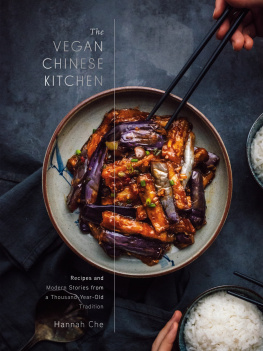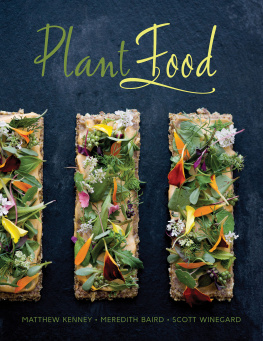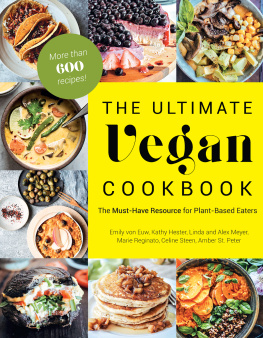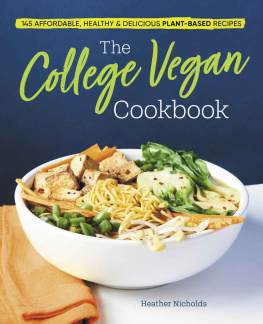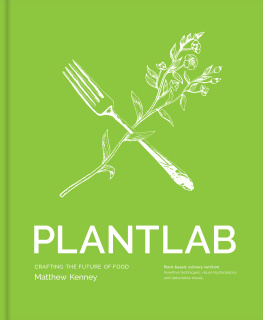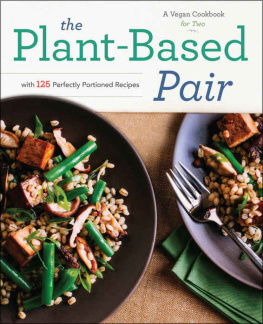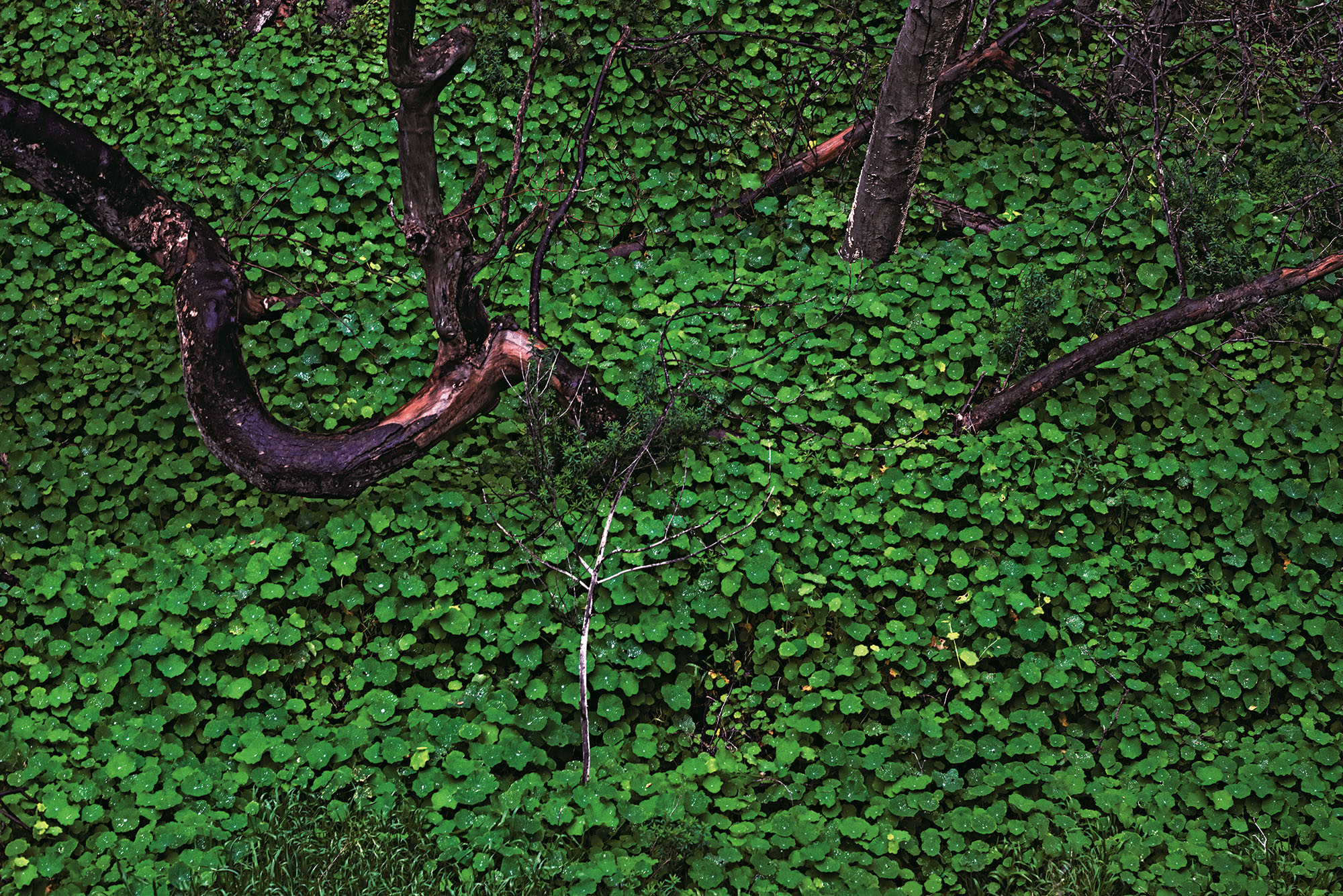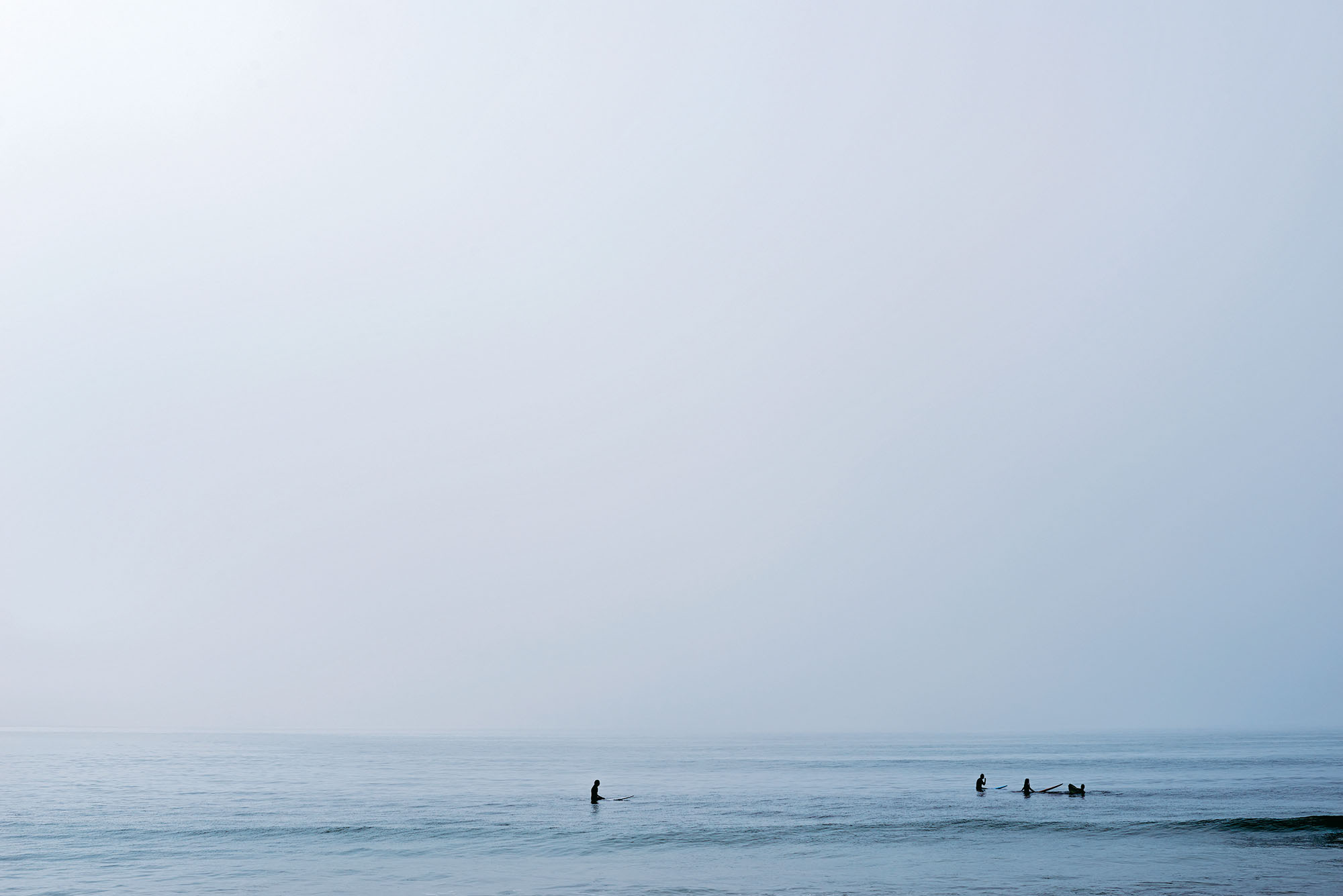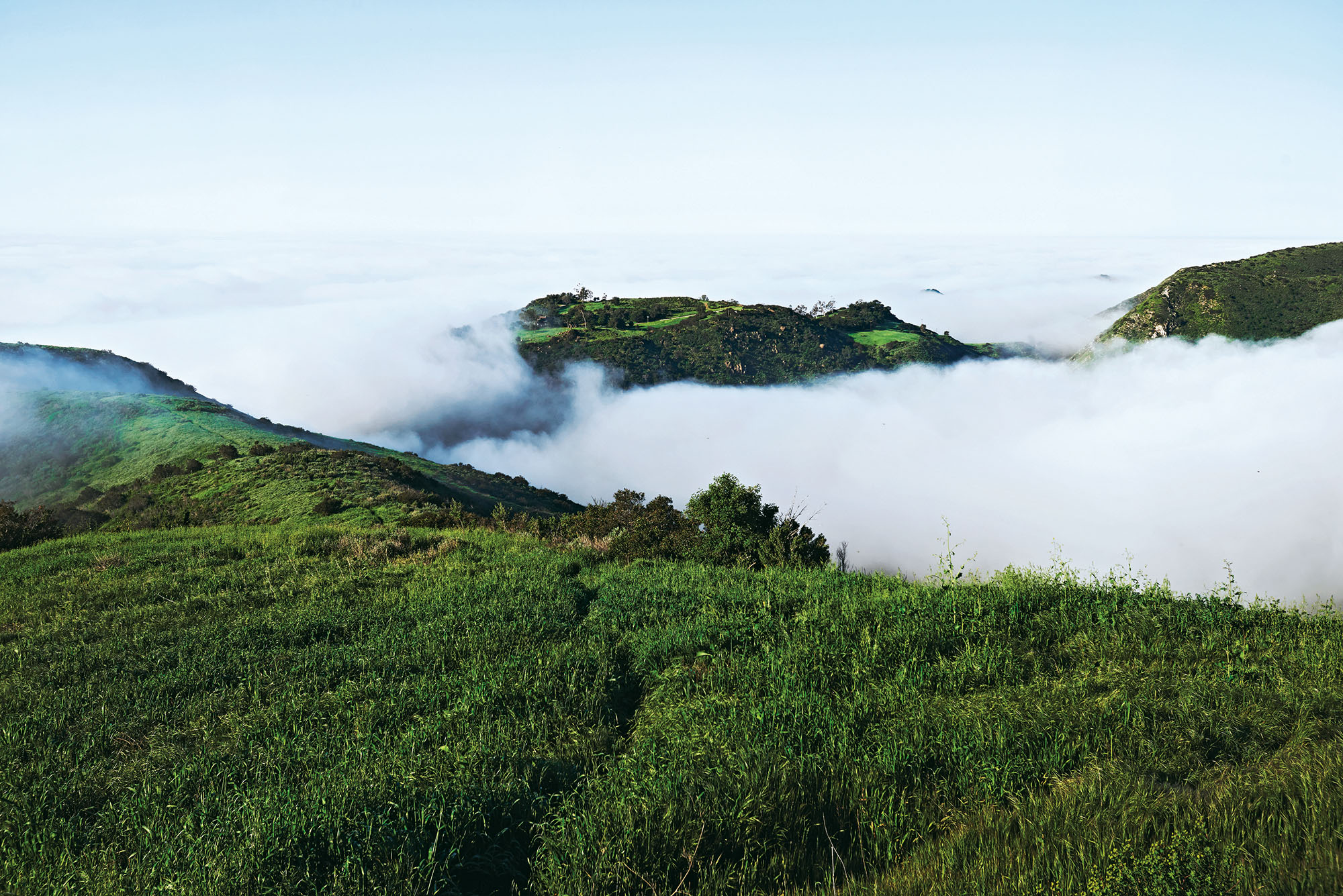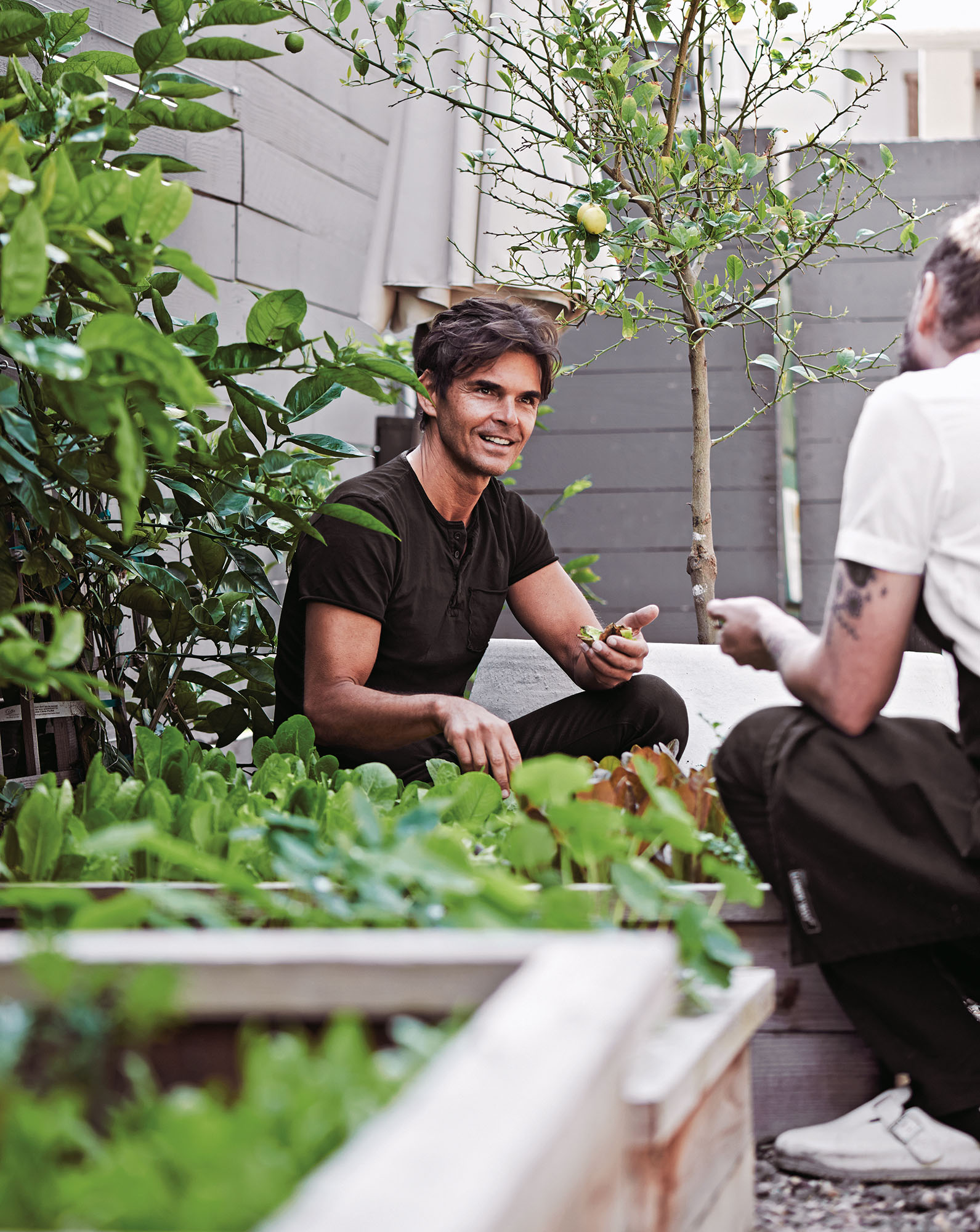Regan Arts. Copyright 2017 by Matthew Kenney All rights reserved, including the right to reproduce this book or portions thereof in any form whatsoever. The cooking techniques and methods presented in this book are the result of the authors experience in working with certain materials and tools. When cooking, care should be taken to use the proper materials and tools. The author and publisher do not assume responsibility for any injury and/or damage to persons or property as a result of the use or misuse of the instructions and techniques contained in this book. First Regan Arts hardcover edition, November 2017.
Library of Congress Control Number: 2017937180 ISBN 978-1-68245-088-8 eISBN 978-1-68245-089-5 Cover and interior design by Richard Ljoenes Charlotte.
CONTENTS
INTRODUCTION
The Plantlab cookbook is a product of more than a dozen years of work with plant-based cuisine. This wouldnt have happened without collaboration with talented people around the world, interaction with thousands of our students, and an overall passion for creating, serving, and teaching others how to prepare the most cutting-edge, flavorful food possible. My role as founder of Plantlab (and Matthew Kenney Cuisine) has been to tell our story, to share the benefits of what we do, and to ensure that future generations treat food and food preparation with respect, in order to best serve the worlds citizens, its animals, and the planet. Of course, I love sharing what we do, how we do it, and why we do it. And I want the world to understand that healthy plant-based foods can also be delicious, sexy, vibrant, beautiful, and consumed without compromise.
The best plant-based meals will never leave one with any level of dissatisfaction. In fact, the opposite is true. Properly prepared, healthy, plant-based food offers everything we need. When I first started working with plant-only cuisine, I had not fully evolved as a chef to grasp that one could be wholly content on this diet. However, over time, and as I increased my knowledge and skills, I strongly came to believe that this is by far the bestand really the onlyway we should eat. This cookbook is meant to show why I believe that.
Through its photographs and recipes, youll see that natural food can be beautiful, transporting even, if given the proper attention. Anyone familiar with our brand knows how important aesthetics are to us. I do believe the results (and taste) of eating plants stand on their own. Minimally processed plants are unlike any other food and literally explode off the plate with color and vibrancy. For this reason, we wanted to create a book that was highly visual and as bold as our food itself. And as plant-based cuisine reaches the mainstream in many ways, I felt it was time to show just how artisticand accessibleit could be.
I am often asked how high-quality, plant-based cuisine evolved. It is so different from traditional cooking, and requires so much creativity, that the answer is not always easy. For many years, I had a hard time explaining it myselfI was simply improvising and experimenting as I went along. The first years preparing this style of food were hit or miss. I had a lot of ideas, some that workedand many that didnt. After two years of trial and error, I had developed enough of a repertoire that I could cobble together a nice menu and make it enjoyable, even transportingfor guests.
But it really wasnt based on a formulated principle at that point; it was more a product of perseverance. It wasnt until I began building the first plant-based culinary academy that I realized the need to create a more formalized structure for plant-based cuisine, in the same way that French or Italian or Japanese cuisines have their own identities. We opened our doors to six students in 2009 in Oklahoma City. The curriculum in those days was a product of several months of research and a lot of thought about my own culinary training, taking the parts that worked and applying them to this new style of cuisine. Our first class ever was called Fundamentals of Raw Cuisine. While the recipes are unique and proprietary, they are relatively easy to make, can be prepared with equipment that most people have in a reasonably well-outfitted kitchen, and will not take days to put together.
The ingredients used in the first chapter, called Fundamentals, are generally readily available. These are dishes that our beginning students can prepare, or that require techniques similar to the ones used in those courses. Even early on with our academy, I was eager to share our more obscure methods. In those days, dehydrating and thermal immersion (sous-vide) were new to raw and plant-based cuisine, so we built a course around innovative techniques. This course became Advanced, and is our second chapter. The recipes here begin to tap into our use of modernist equipment, although they still use equipment found in most gourmet kitchen shops.
We delve further into the methods that create depth of flavor, such as smoking and fermentation, and offer more elaborate recipes. The reality is that plant-based food can be a challenge until you become comfortable with doing things differently. We also do not always rely on purchasing things people take for granted, such as flours. Instead, we often sprout almonds and make our own almond flour, or dehydrate our own crackers. These extra steps can add work and time, although they also add to the quality of experience one has when eating something entirely made by ones own hand. After several years of offering Fundamentals and Advanced courses, we recognized that we had more to share, and our thousands of graduates had more to learn.
In 2015, we began to offer Pro, a course designed to give students the skill set needed to forge their own paths, to embrace their own creative styles, and to push the boundaries beyond what is typically taught in culinary academies. Initially, we offered this course only once a year. Now, with the rapidly growing plant-based market, we feature it several times a year. It is a very liberating part of the curriculum and is an ideal stepping-stone away from the structure adhered to in Fundamentals and Advanced. In Pro, recipes embrace more creativity, are more technically sophisticated, and may call for techniques that require more precision. By no means are these recipes so complex that only a professional cook could prepare them, but they do require more of a commitment.
They are also worth the time and effort, as results will be something more than what youll typically see, even in a well-run, plant-based establishment. Future is our highest level and it is where I spend a lot of my own creative space, considering new ways of doing things but also how things will be done in the years ahead, once plant-based cuisine fully evolves and reaches its tipping point. While Fundamentals are critical to understanding what our food really is, Future is critical to understanding what it can and will be. Future pushes boundaries and is not intended to strike the comfort zone, but rather to provoke, to generate new ideas and a different way of thinking. Generally, our most unique methods and our most original recipes fall into this section, although a dish could be here simply due to the meticulous skill required to properly prepare it.



